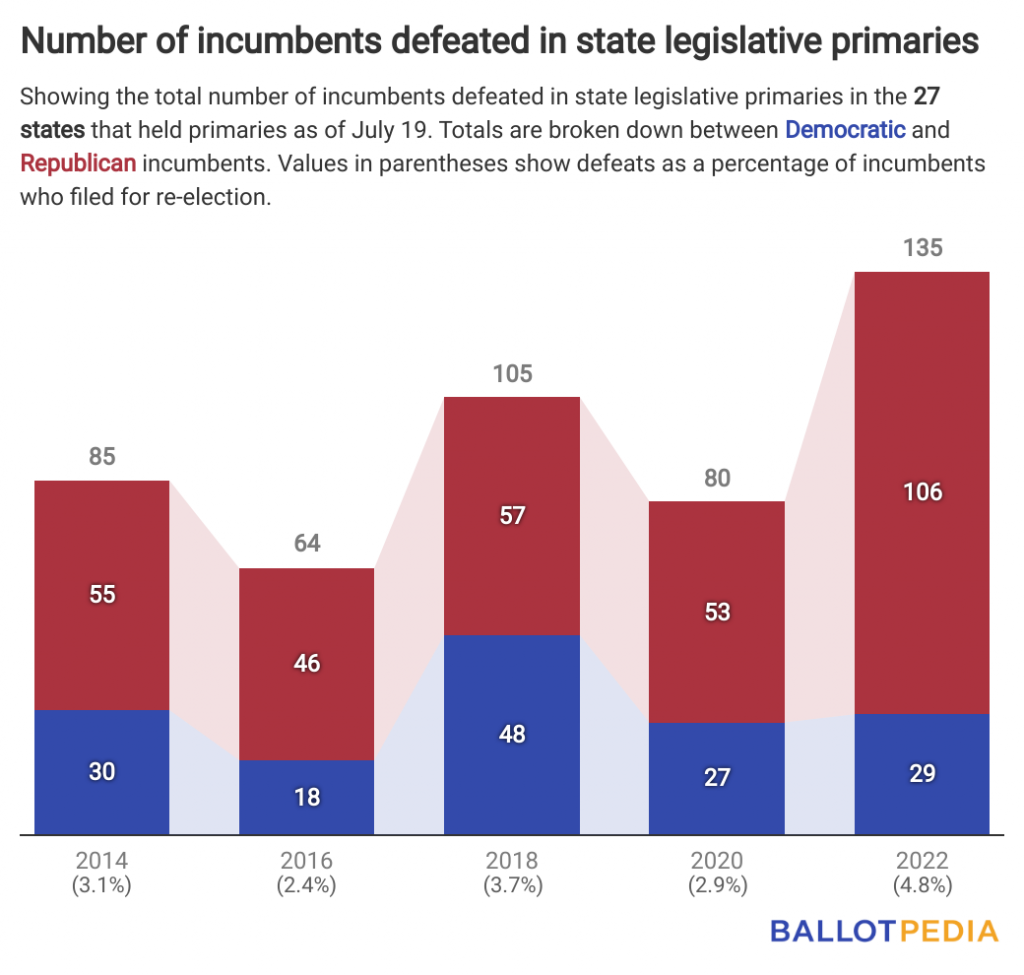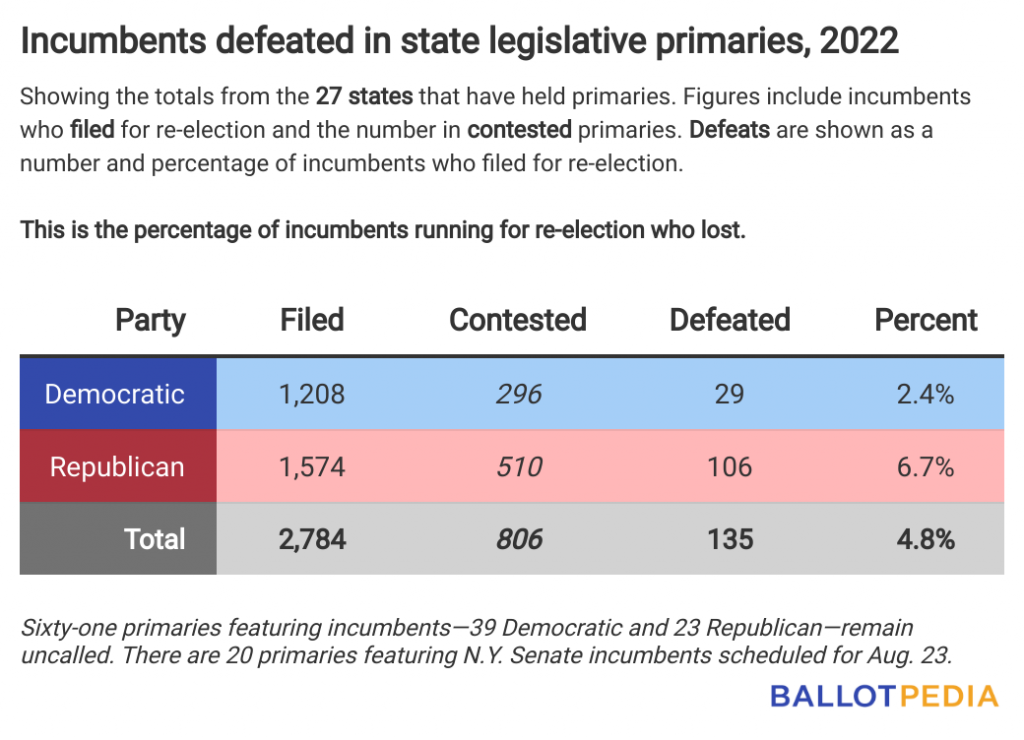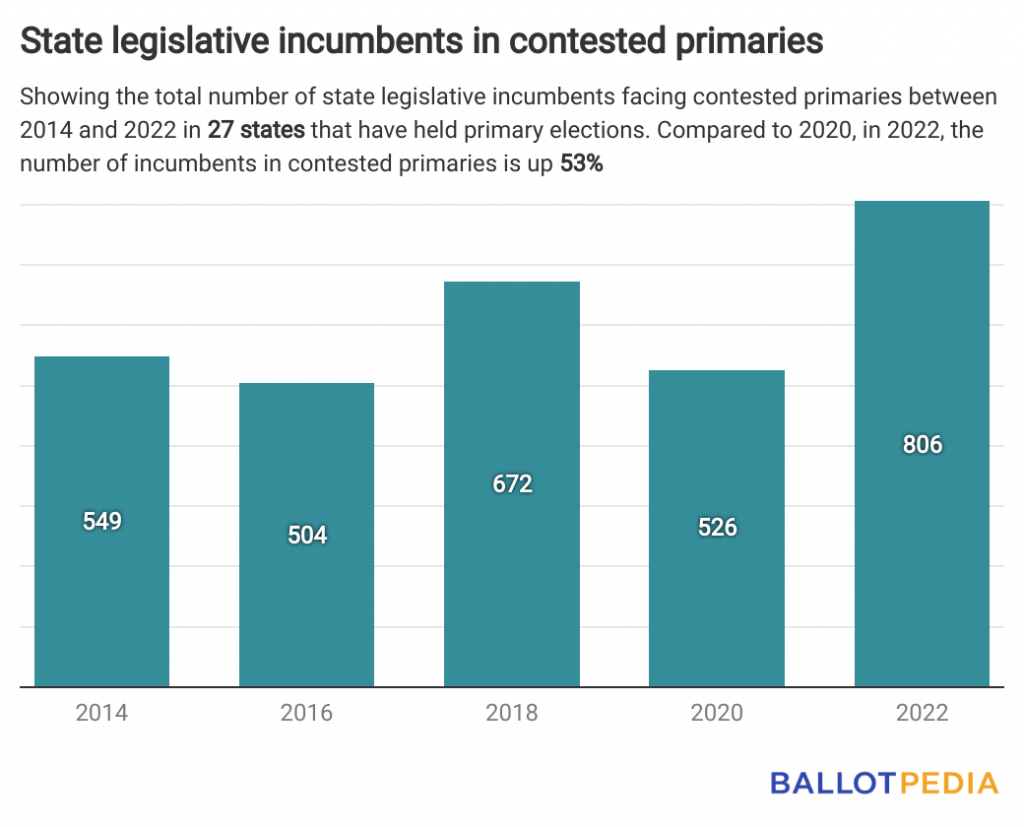So far this year, 135 state legislative incumbents—29 Democrats and 106 Republicans—have lost to primary challengers.
Across the 27 states that have held primaries, 4.8% of incumbents running for re-election have lost, an elevated level of incumbent losses compared to previous cycles.

These totals include data from Maryland, which held state legislative primaries on July 19. No incumbents have lost in these primaries so far, but 55 races remain uncalled.
This year, Republican incumbents have lost at a higher rate than Democrats. Of the 1,574 Republican incumbents who filed for re-election, 106 (6.7%) have lost to primary challengers. For Democrats, 29 of the 1,208 who filed for re-election (2.4%) have lost.

But fewer Democratic incumbents are facing primary challengers than their Republican counterparts. Around 25% of Democratic incumbents who filed for re-election faced contested primaries compared to 32% for Republicans.
In these 26 states, 2,784 incumbents filed for re-election, 806 of whom (29%) faced primary challengers.

Thirty of these 135 incumbent defeats (22%) were guaranteed due to redistricting. When states redraw legislative lines, incumbents can oftentimes end up in a new district with other incumbents leading to incumbent v. incumbent primaries or general elections. Since, in these races, there are more incumbents running than nominations or seats available, at least one incumbent must lose.
Of the 27 states that have held primaries so far, eight have Democratic trifectas, 15 have Republican trifectas, and four have divided governments. Across these 27 states, there are 3,525 seats up for election, 57% of the nationwide total.
The figures for 2022 will likely increase. There are currently 61 uncalled primaries featuring incumbents—39 Democratic and 23 Republican—and 20 primaries featuring New York Senate incumbents scheduled for Aug. 23.
You can view more information about state-specific and historic information regarding incumbent defeats by clicking "Learn More" below.



